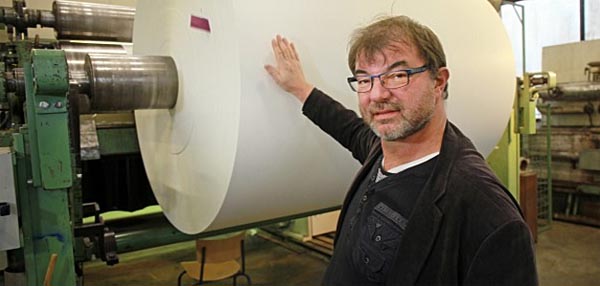Paper Made From Greenhouse Waste Becomes More Common
According to a report this past week by Hortidaily (Netherlands), a paper company in Holland is now marketing a new type of paper that is partly made from the fibers of tomato and/or pepper plants. Schut Papier has plans to eventually also introduce other agricultural residues in paper production.
With a production volume of 3,500 metric tpy, Schut Papier is still the smallest paper plant in the Netherlands. But that isn't all bad news according to the company's leader.
"That also makes us the most flexible factory of our country. Partly because we are so flexible, we became involved in a research project of the Dutch Bio Refinery Cluster. Smurfit Kappa wanted to develop packaging on the basis of tomato plant fiber. However, their own equipment is too large for the research. Our paper machine has the ideal scale, this is how we could join in. We worked on this packaging for two years. In the meantime we acquired a lot of knowledge about how to process fibers from agricultural waste streams to serve as raw material for paper," said CEO René Kort.
With this knowledge Schut Papier developed "Valorise by Schut Papier".
Pictured above: This roll of paper was made entirely from tomato plant fiber.
"The paper consists partly of tomato and/or pepper plant fibers. We want to maximally contribute to the realization of a bio-based economy. The residual material of one may very well be the raw material for another. By wisely handling our raw materials now, we can give future generations a livable world as well. For us this concretely means that we want to replace wood fibers with fibers from waste streams as much as possible. After the harvest of tomatoes, for example, the plant is considered as waste. That is nonsense, because the stems contain interesting substances such as paints, adhesives, plant protection products and are packed with fibers for paper production. This means profit for everyone. The growers extract value from their waste stream and we all operate more sustainably," Kort explained.
TAPPI
http://www.tappi.org/

